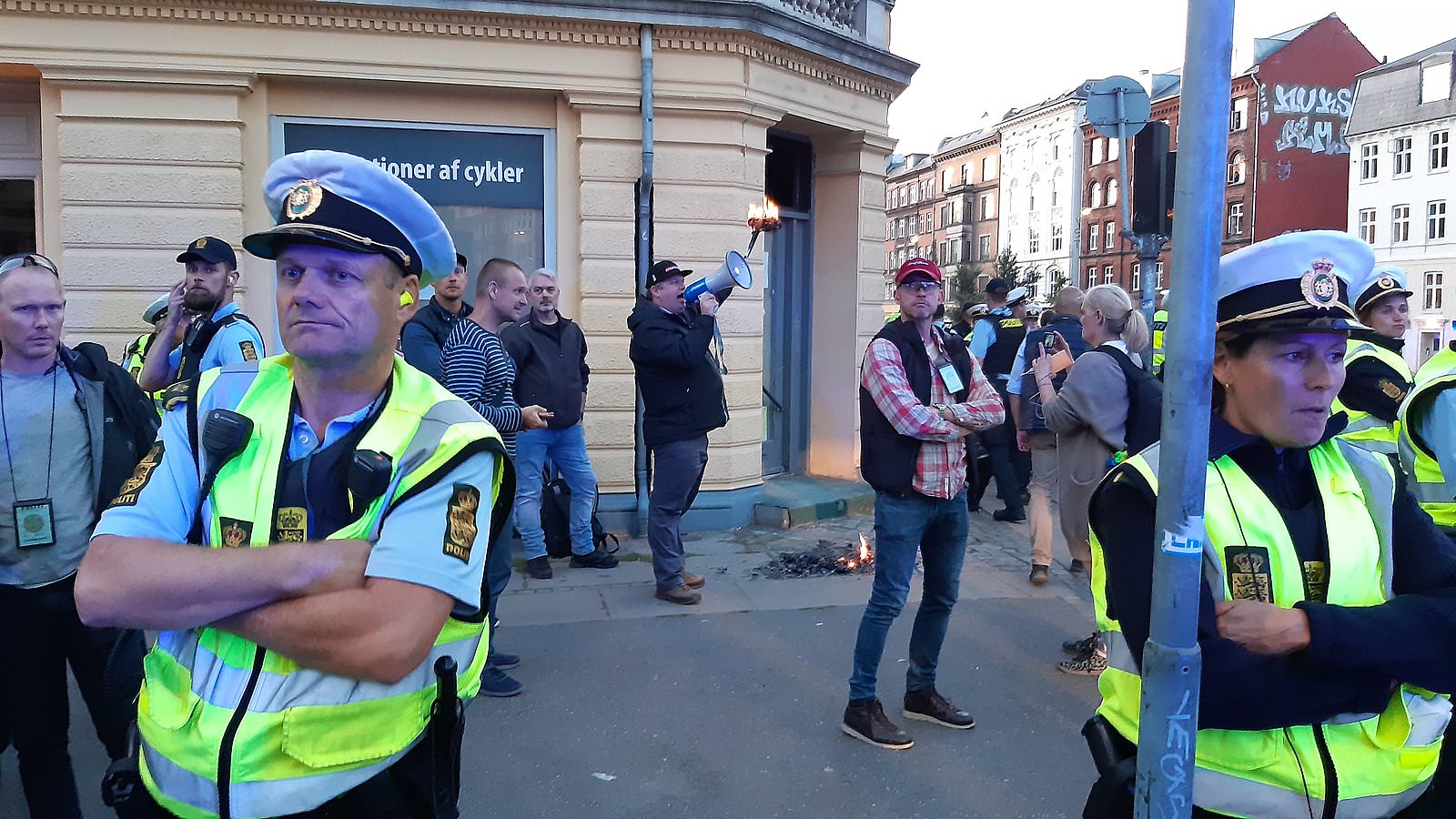World
Quran Burning in Sweden Sparks Rage - Shakes NATO To Its Core
By Belal Awad · June 29, 2023

In a contentious event that has sparked international backlash and raised questions about NATO alliances, a protester set fire to a Quran outside Stockholm’s central mosque, leading to global outrage. Iraqi Protesters have surround the Swedish embassy in Baghdad and Jordan and Morocco have summoned the Swedish ambassadors to their countries. The individual involved has been accused of inciting hatred against an ethnic or national group, sparking debates on freedom of expression, hate crimes, and diplomatic repercussions, as reported by Al Jazeera.
The act of burning the Quran, a holy text in Islam, is technically permissible under Sweden’s freedom of expression laws. However, this incident has been met with widespread international disapproval. Turkish President Recep Tayyip Erdogan expressed his dismay, emphasizing the importance of respecting religious beliefs. He warned, “If you do not show that respect, I’m sorry you will not see any support from us on NATO.”
Russian President Vladimir Putin also weighed in on the issue, underscoring the sanctity of religious beliefs across all faiths. “It is sacred for Muslims, and it must be sacred for other religions,” Putin stated, advocating for increased reverence. He further criticized the disregard for religious sentiments in some countries, asserting, “They also say it’s not a crime in our country. It is a crime.”
This Quran burning incident has ignited a broader debate within Sweden, focusing on the tension between freedom of expression, the country’s constitution, and discrimination against minorities.
Swedish law can override such acts if they are proven to be motivated by hatred towards an ethnic minority. Previous Quran burning incidents in Sweden have never involved native Swedes. One case involved an Egyptian immigrant attempting to demonstrate the threats he would face if sent back to Egypt. Another incident was carried out by a Danish far-right politician who had become a Swede to circumvent legal complications. In the current case, an Iraqi immigrant is using the Quran burning to argue for its allowance under the Swedish constitution.
As Sweden wrestles with the diplomatic fallout and the ongoing debate surrounding freedom of expression, questions arise regarding the delicate balance between protecting constitutional rights and addressing concerns of hate speech and religious intolerance. The incident has prompted discussions not only within Sweden but also internationally, drawing attention to the boundaries of free speech and the responsibility of individuals in expressing their views without inciting hatred or harming religious sentiments.
The repercussions of this Quran burning incident reach beyond Sweden’s borders, with concerns raised about the potential impact on Turkish NATO support.
Light Wave commentary
Commentary: This news story presents the recent incident of a Quran burning outside a mosque in Stockholm, Sweden, and its implications on freedom of expression and hate crimes. The quotes from international leaders highlight the widespread condemnation of the act, with concerns raised about the respect for religious beliefs and the potential repercussions on diplomatic relations. The journalist’s analysis provides valuable context regarding Sweden’s constitutional framework and the importance of intent in determining the legality of such actions. By presenting a balanced perspective, this article encourages readers to consider the complexities surrounding freedom of expression and its limitations in the context of hate crimes.